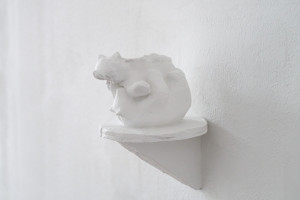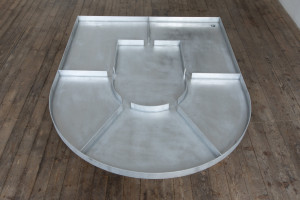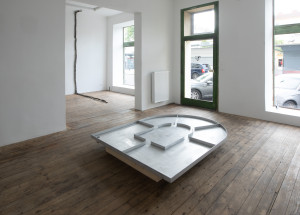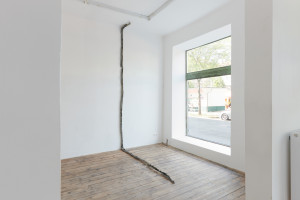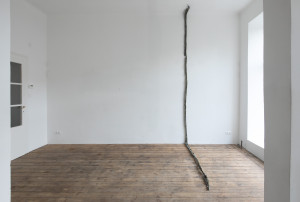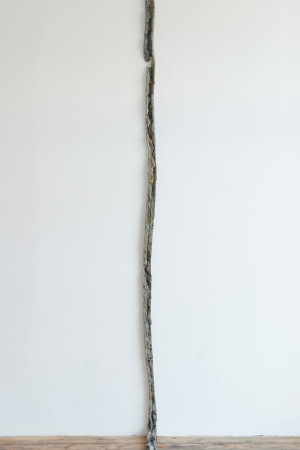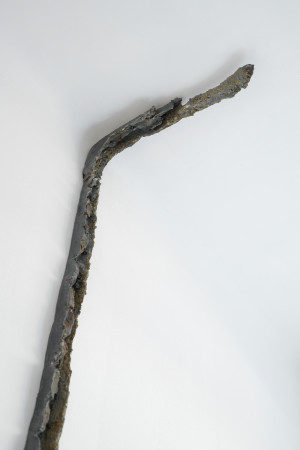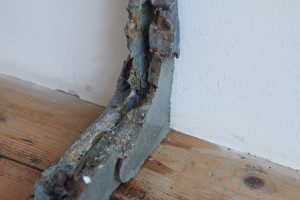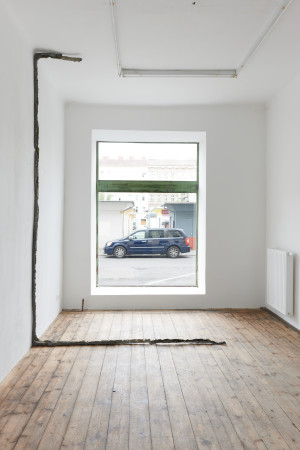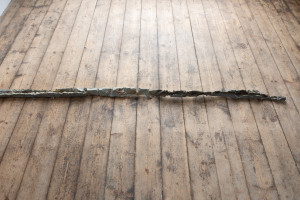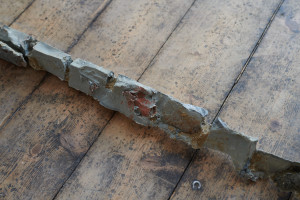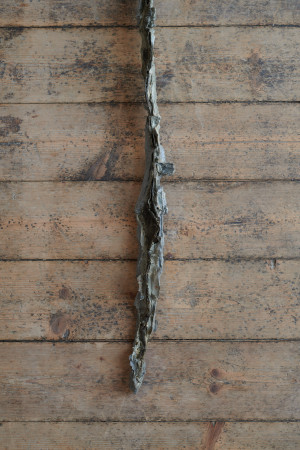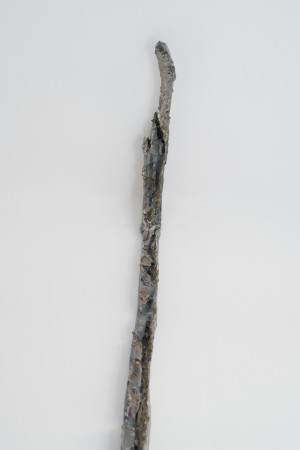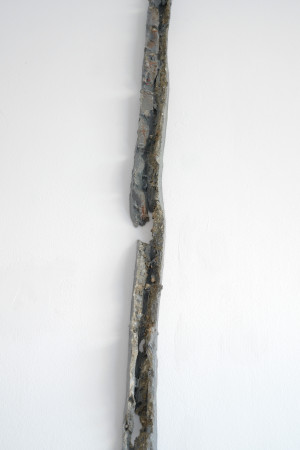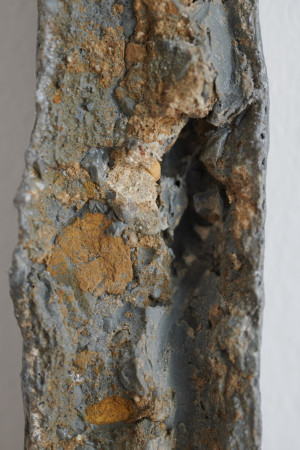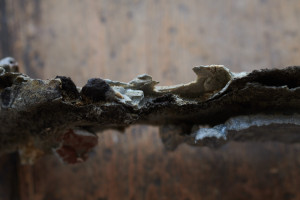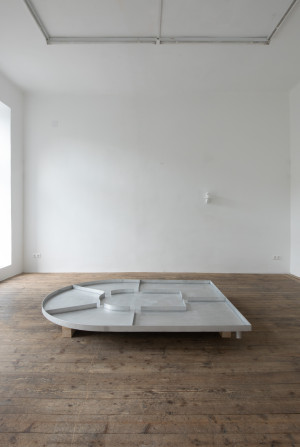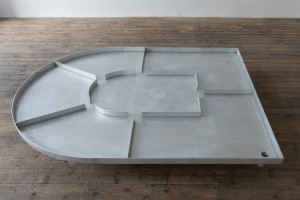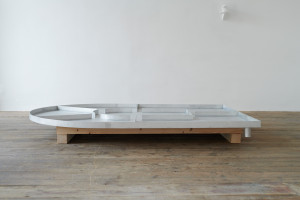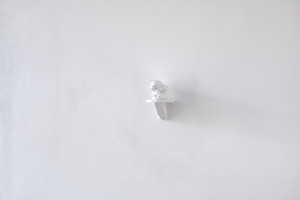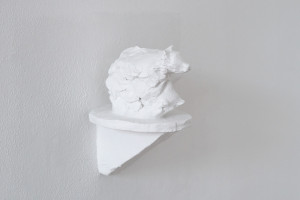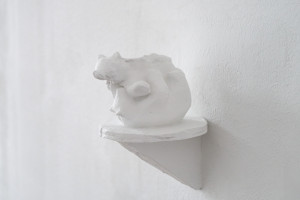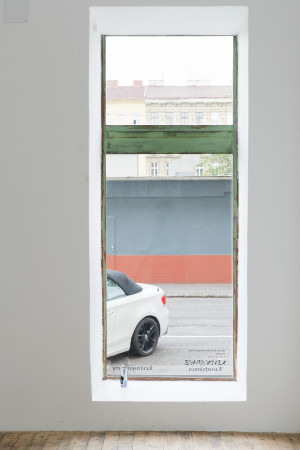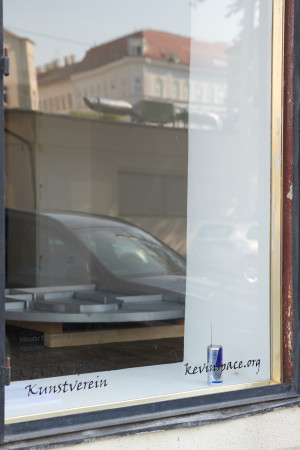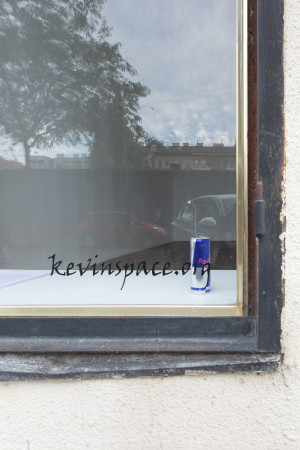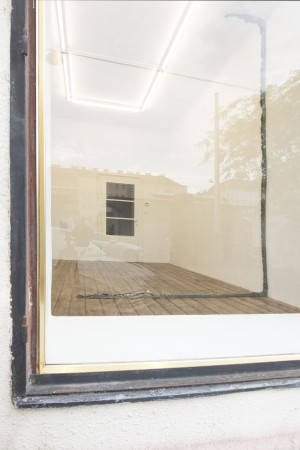Standing in front of it to the left is an old Fuhrhaus, a low two-story building that was home to horse carriages until the early twentieth century. Buildings this low are typically from the Biedermeier era and before; most were taken down in the big restructuring of Vienna during and after Gründerzeit, in the latter half of the nineteenth century. What is also now rare is the small construction business, whose red logo is displayed on the green gate and which is the only tenant of the building. Basic machinery, equipment, and tools are stored in the inner courtyard, and there is a small office upstairs, with a “dogs allowed” sign posted outside. The business offers limited, small-scale renovation and reconstruction works—meanwhile large parts of the district are being completely remodeled and expanded, with new transit stations and neighborhoods. The owner, an elderly woman, does only home office and could not to be reached—as the person still working at the office explained.
The next building farther up Schrankenberggasse is a publicly funded cooperative house. On it can be seen a beehive logo, meaning it was built with financial aid from the Marshall Plan. It is functional architecture from the 1960s, with its entrance framed by a large concrete relief and the signature of the artist, L. Wolf. The title of the relief—“Befreier der Bauern vom Robot” (Liberator of the peasants from robot).*
Neighboring the Fuhrhaus down the street is a Gemeindebau, a seven-story public-housing building from the 1920s. The standardized flagpole socket for municipal, and occasionally other, flags is mounted on its facade, and the building’s inscription—another signifier of the era of Rotes Wien (Red Vienna, 1919–34)—reads, in large red letters: “Wohnhausanlage der Gemeinde Wien errichtet in den Jahren 1925 bis 1927 aus den Mitteln der Wohnbausteuer” (Residential estate of the municipality of Vienna built in the years 1925 to 1927, financed from the revenues of the residential construction tax). The building is unlike the classic Gemeindebau—not a Hof or complex, just a rather normal apartment building in size.
One house farther down to the right is a postmodern apartment building from the early 1980s, designed by a Belgian architect. Its main entrance is decorated with a large replica of a Doric column and the leaf-like logo of the ÖVW (Österreichische Volkswohnungswerk). The ÖVW is a state fund for social housing established in the old empire under the Austrian Kaiser Franz Joseph. The letters of the old ÖVW logo, grotesquely arranged on the leaf shape, resemble an ant.
On the opposite corner is a unique set of single-family homes for workers with higher income, built in the late 1880s and in the English architectural style of the Edwardian era.
Standing with one’s back to these units and looking across the street, a large housing complex from the 1960s dominates the street side opposite the Fuhrhaus. Part of the complex is a cute animal sculpture—typical of the placatory idea of municipal public sculpture in the postwar era.
*Robot is an old Austrian-German term for forced labor.
Niloufar Emamifar lives and works in New York. Her work has been presented at MoMA PS1, New York; Essex Street, New York; Hammer Museum, LA and Sculpture Center, New York, among others. Her solo exhibition Ex gratia is currently on view at Künstlerhaus Stuttgart.
Benjamin Hirte lives and works in Vienna. He studied Sculpture at the Academy of Fine Arts Vienna. His work has been shown at Museum für Moderne Kunst, Frankfurt; Swiss Institute, New York; Kölnischer Kunstverein, Cologne; Christian Andersen, Copenhagen; Emanuel Layr, Vienna and MAK Center, Los Angeles among others.

